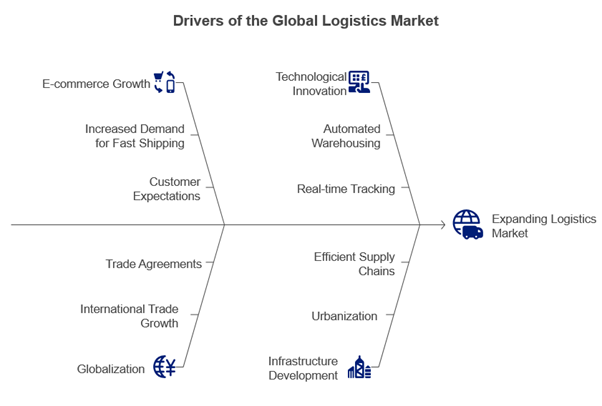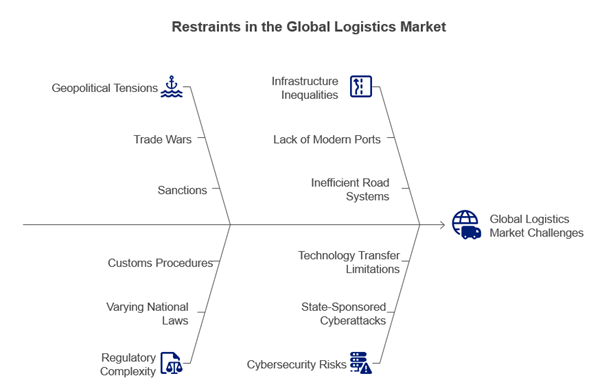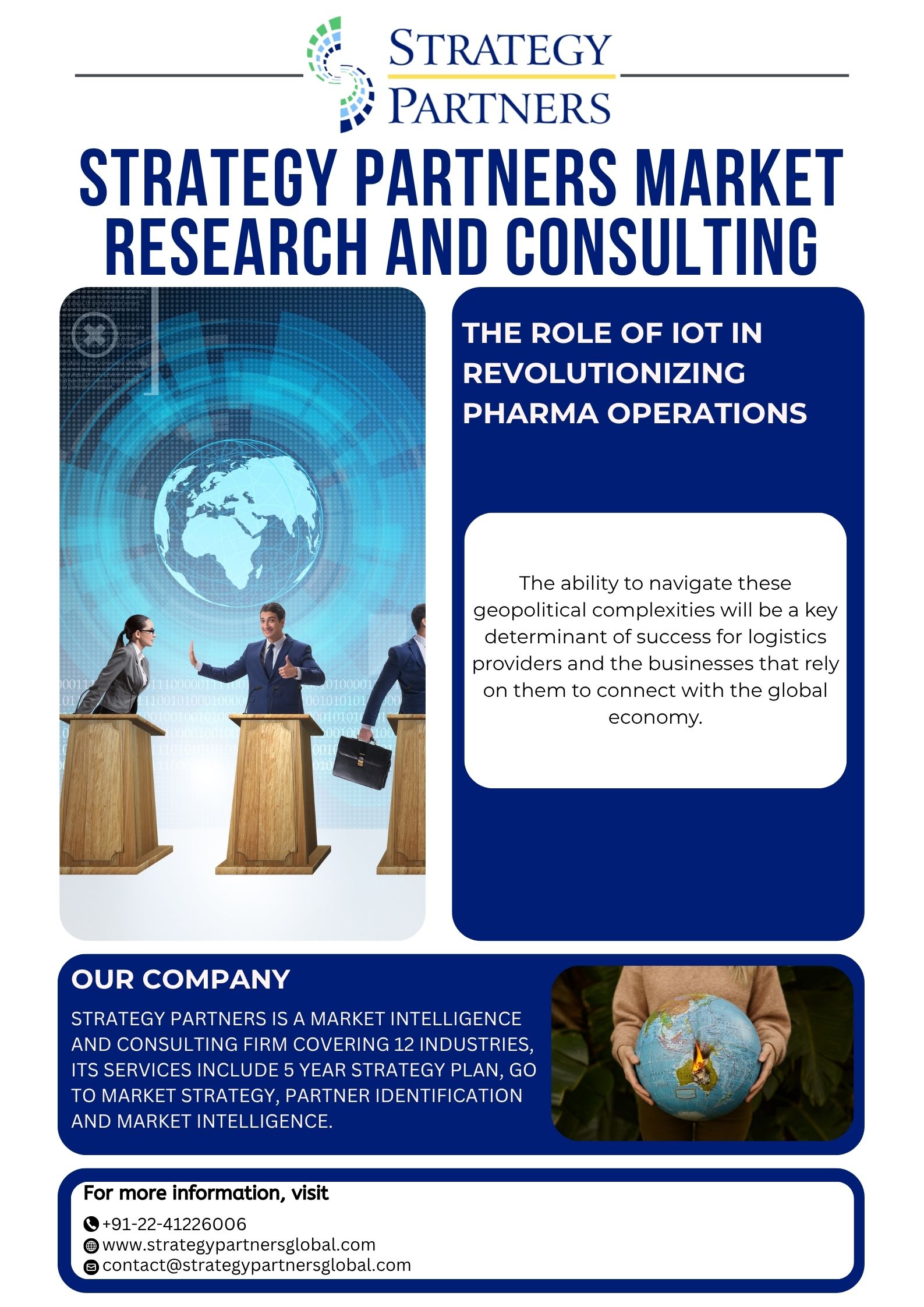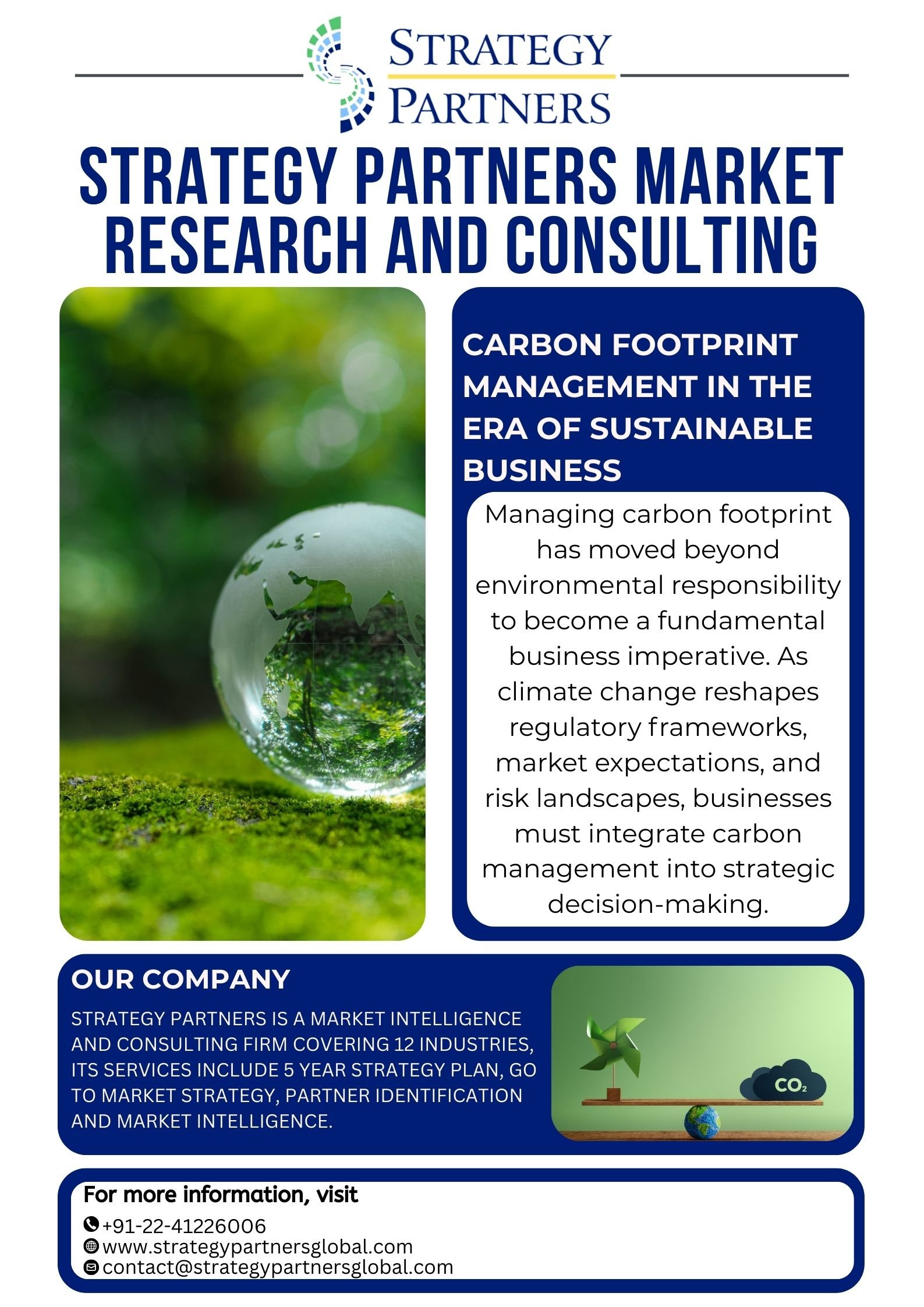An essential component of international trade and economic activity is the global logistics sector, which includes the transportation, storage, and delivery of commodities across national borders. However, Geo-Political Impacts factors including trade policies, foreign relations, and regional conflicts have a significant impact on its effectiveness and durability. Supply chains, trade routes, and logistical operations are shaped by geopolitical circumstances, which present stakeholders with both opportunities and difficulties.
Global Logistics Market in the Past:
Ancient trade networks like the Silk Road and the sea routes that connected Europe, Asia, and Africa are the origins of the global logistics market. Geopolitical factors such as trade agreements, territory disputes, and the rise and fall of empires had a significant impact on these early institutions. Simple seafaring vessels, physical labor, and animal transportation were the mainstays of logistics operations. Because alliances made it easier to exchange goods over great distances and conflicts or piracy could disrupt trade routes, geopolitical stability was essential. Global logistics underwent a sea change during the Industrial Revolution in the 18th and 19th centuries. Transportation innovations like railroads and steamships transformed the flow of commodities. Globalization accelerated in the latter half of the 20th century as trade liberalization measures lowered obstacles to cross-border trade. A more interconnected logistics sector was promoted by the creation of international trade agreements and organizations. When containerization was implemented in the middle of the 20th century, it transformed logistics efficiency and standardized transportation.
Global Logistics Market in the Present:
The development of e-commerce, globalization, and technological advancements have all contributed to the complexity and interconnectedness of the global logistics business. Transportation (air, sea, rail, and road), storage, freight forwarding, and last-mile delivery are just a few of the many activities that fall under this broad category. Geopolitical issues continue to have a big impact on logistics costs, supply chain resilience, and trade policy. The susceptibility of logistics networks to geopolitical disruptions has been highlighted by recent international events, including trade wars, regional conflicts, and changes in international alliances.The logistics market is directly impacted by trade policies and tariffs that are determined by geopolitical factors. The flow of goods is facilitated by bilateral and multilateral trade agreements, while barriers are created by protectionist policies like tariffs and sanctions.
Global Logistics Market in the Future:
Due to shifting geopolitical dynamics, the global logistics business is expected to undergo substantial changes over the next several decades. Trade flows will change as a result of new economic powers and changing alliances, with emerging markets becoming more important to global logistics. Logistics providers will face both possibilities and problems as regional trade agreements and economic blocs become more prominent. The market will have to create flexible and varied supply chains in order to adjust to these developments. Resilience will be given top priority in the logistics sector of the future in reaction to geopolitical uncertainty. Businesses are supposed to diversify their supply chains in order to lessen their dependency on particular nations or areas for logistics and production. The logistics industry will continue to change as a result of technological advancements like automation, robotics, and driverless cars that increase productivity while cutting expenses. The adoption of these breakthroughs will be influenced by geopolitical considerations, such as limitations on technology exports and worries about data sovereignty. For new technologies like drone delivery or autonomous shipping to integrate seamlessly into global logistics networks, international cooperation on standards will be essential.
Drivers of the Global Logistics Market:
The expansion of online shopping
One of the main factors propelling the global logistics market is the growth of e-commerce. Customers’ demands for same-day or next-day shipping have increased demand for prompt and dependable delivery services.
Globalization and the Growth of Trade
Globalization is still driving the logistics business in spite of geopolitical obstacles. The volume of goods traveling across borders rises as a result of the growth of international trade, which is bolstered by trade agreements and economic partnerships.
Developments in Technology
One of the main factors propelling the logistics market is technological innovation. Efficiency and transparency are improved by tools like automated warehousing, real-time tracking, and predictive analytics.
Infrastructure Development and Urbanization
The need for logistics services is being driven by emerging markets’ rapid infrastructure development and urbanization. Efficient supply chains for goods and services are necessary due to the growing urban population.

Restraints of the Global Logistics Market:
Tensions in Geopolitics and Trade Barriers
The global logistics market is significantly hampered by geopolitical conflicts including trade wars and sanctions. For logistics companies, these elements raise expenses, mess up supply networks, and breed unpredictability.
Complexity of Regulation
Different national legislation present difficulties for the global logistics business. International logistics companies have challenges because to variations in safety regulations, environmental regulations, and customs procedures.
Inequalities in Infrastructure
One factor limiting the logistics business is uneven infrastructure development across regions. Emerging markets frequently lack sufficient infrastructure, such as contemporary ports or effective road systems, whereas established nations have sophisticated transportation and logistics networks.
Costs of Environmental Compliance
The high costs of compliance make the drive for sustainability both a motivator and a constraint. Making the switch to sustainable packaging, renewable energy sources, and low-emission automobiles will cost a lot of money.
Risks to Cybersecurity
Cybersecurity risks are brought on by logistics’ growing reliance on digital technologies. These risks may be made worse by geopolitical tensions, such as state-sponsored cyberattacks or limitations on technology transfers.

Challenges in the Global Logistics Market:
Handling Geopolitical Uncertainty
Conflicts, trade disputes, and sanctions are examples of geopolitical instability that significantly affects the logistics industry. These elements have the potential to raise prices, impede trade routes, and postpone shipments.
Keeping Sustainability and Cost in Check
One of the biggest challenges in logistics operations is achieving sustainability while keeping costs competitive. Renewable energy and electric cars are two examples of green technologies that might be costly.
Resilience of the Supply Chain
One of the biggest challenges is creating robust supply chains in the face of geopolitical unpredictability. Reliance on particular areas or vendors makes one more susceptible to disturbances like trade prohibitions.
Lack of Talent and Skills
Talent shortages are a problem for the logistics industry, especially in fields like supply chain management, data analytics, and technology integration.



